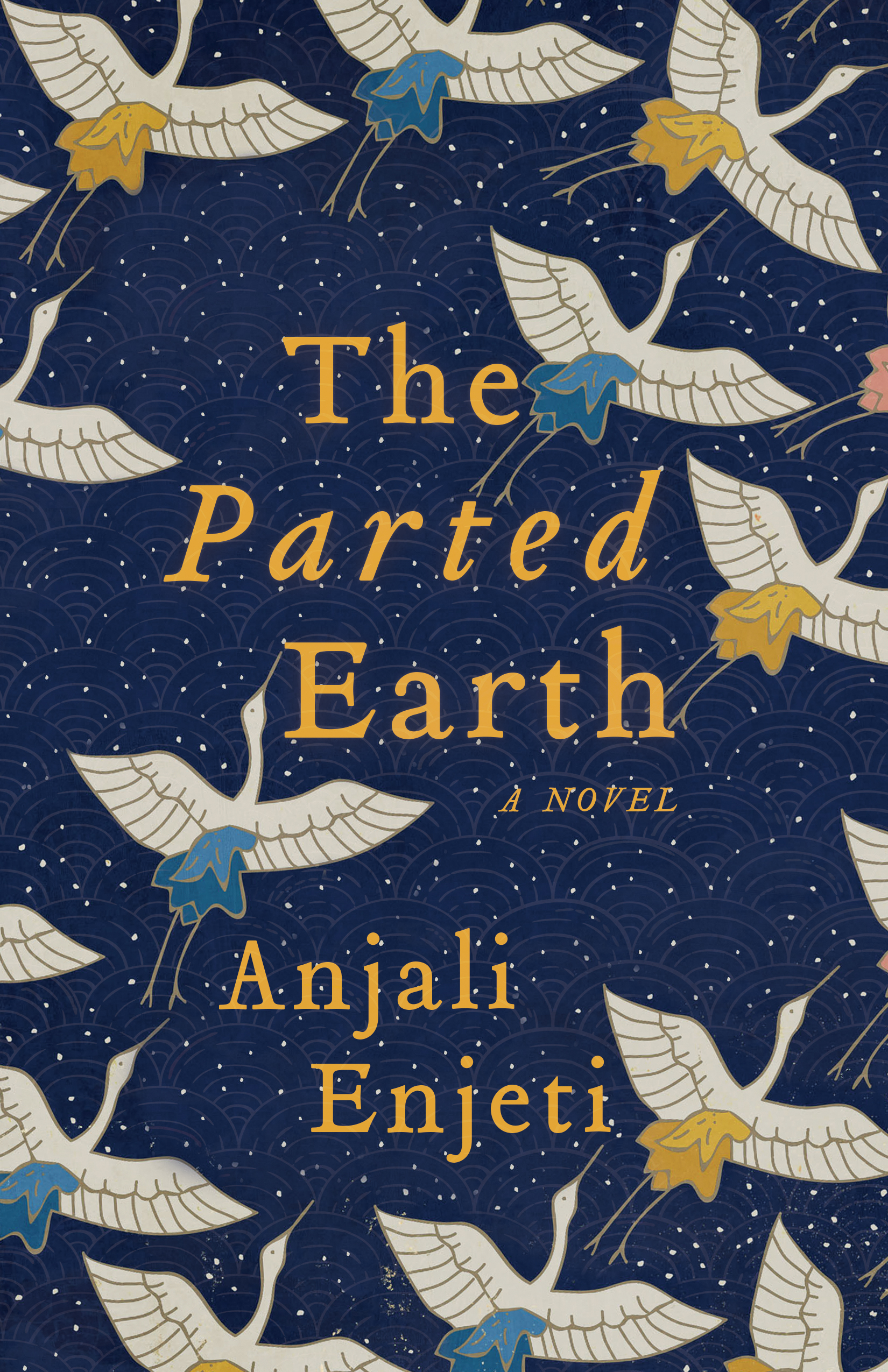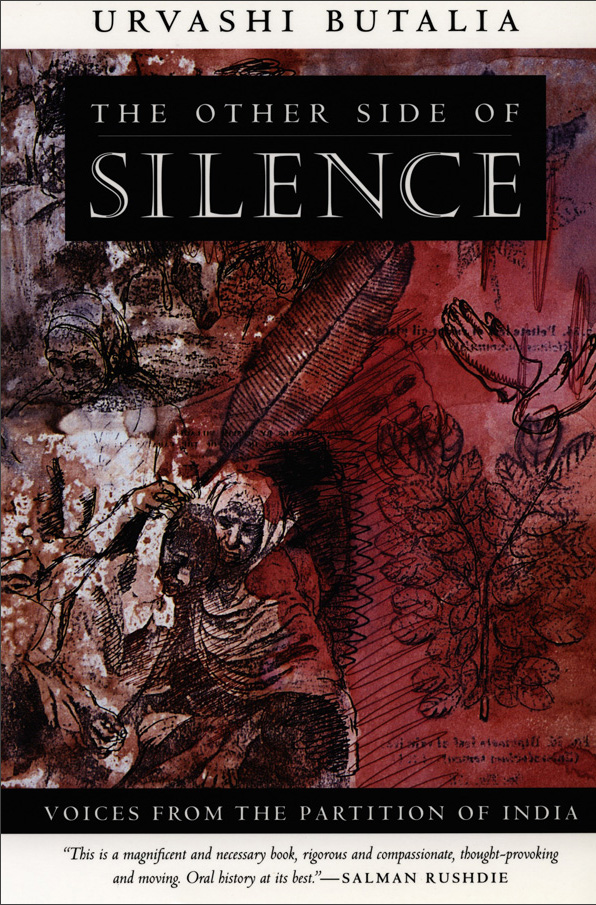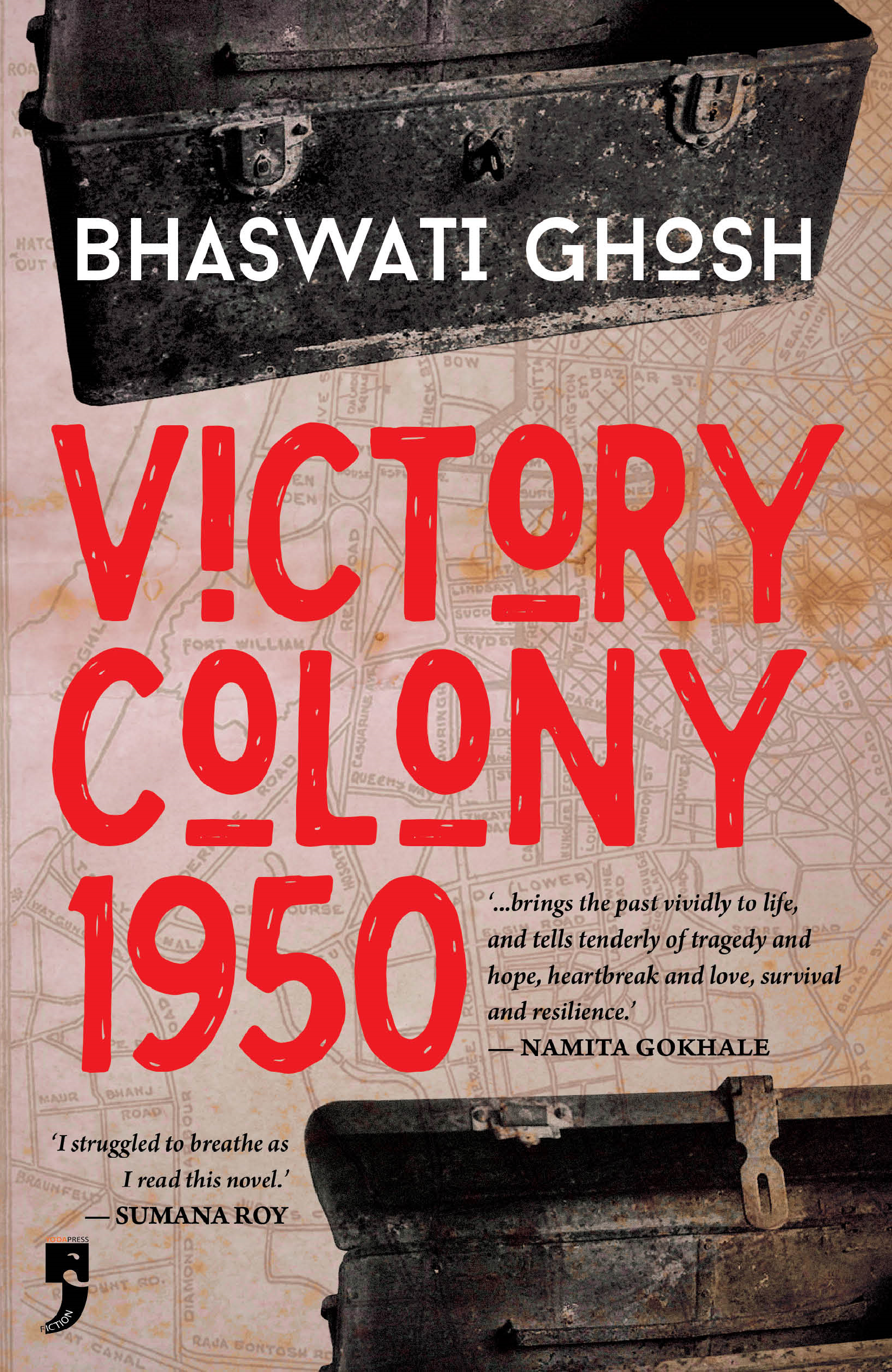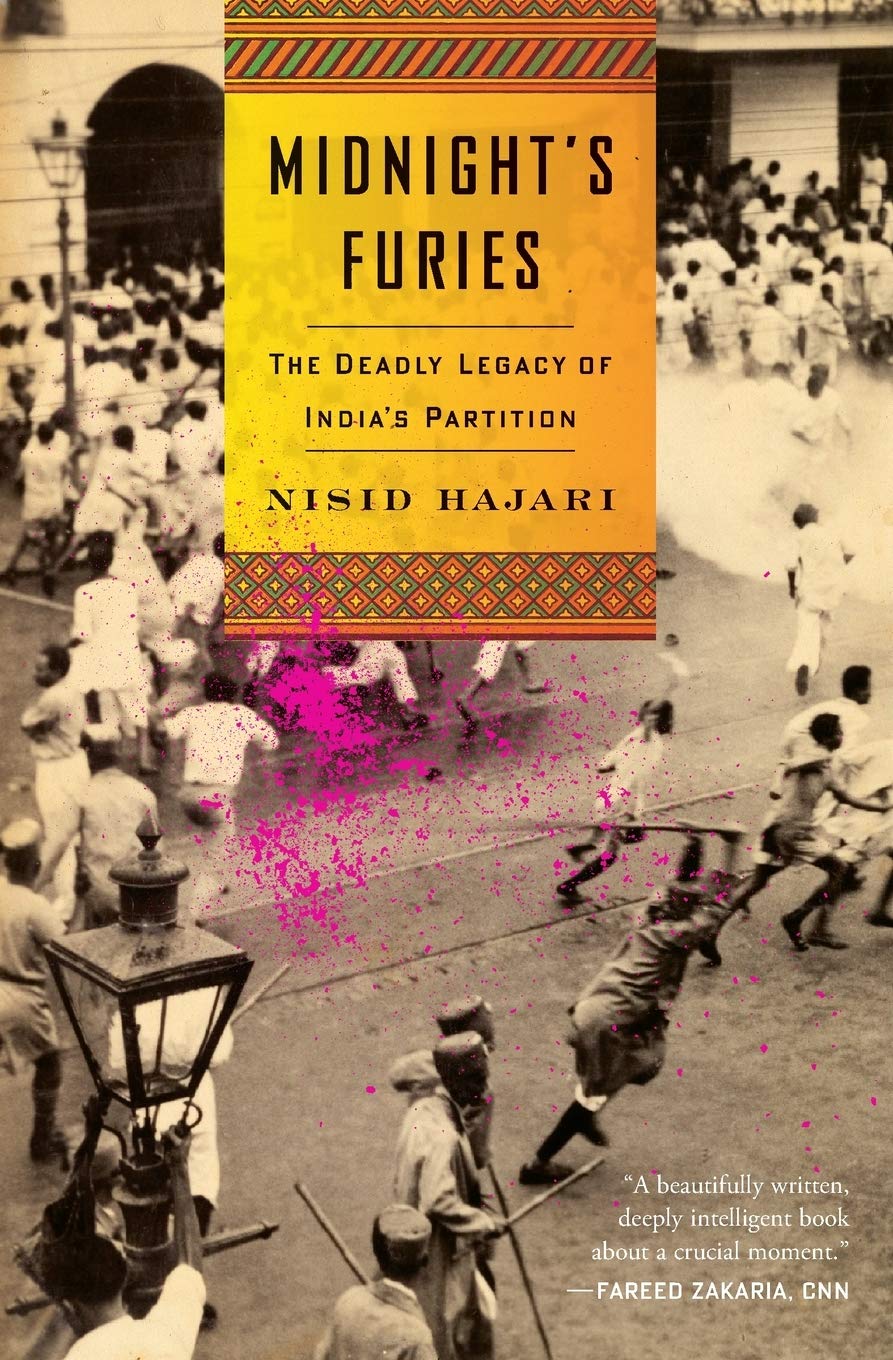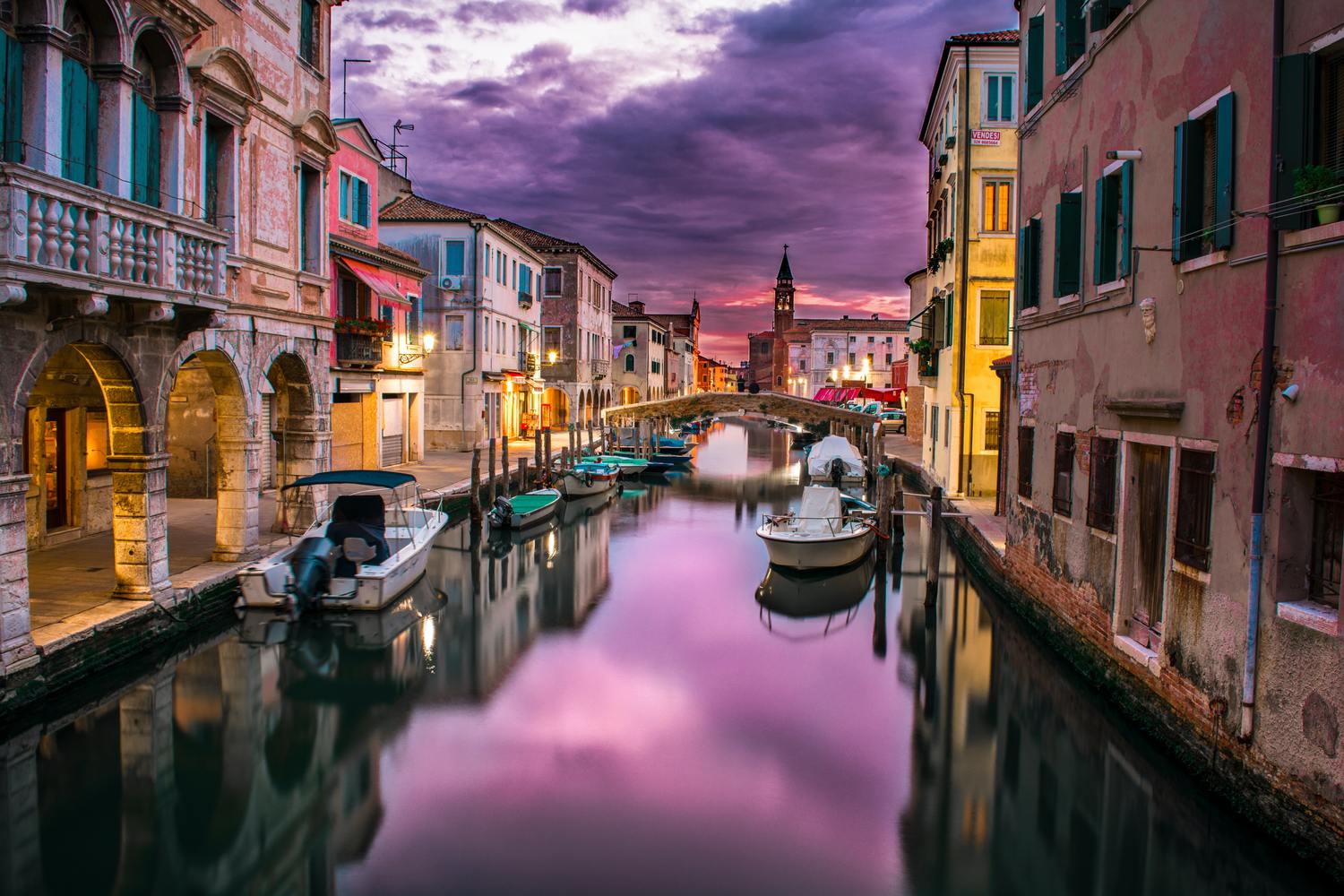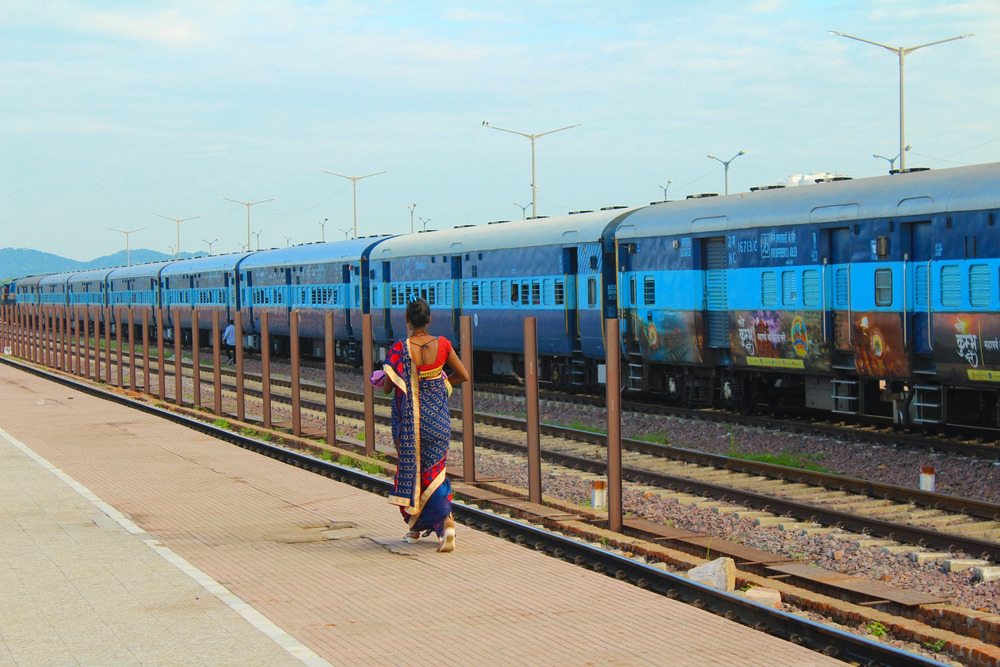Reading Lists
7 Books About the Partition of India and Pakistan
Anjali Enjeti, author of "The Parted Earth," recommends stories about the largest human migration in history
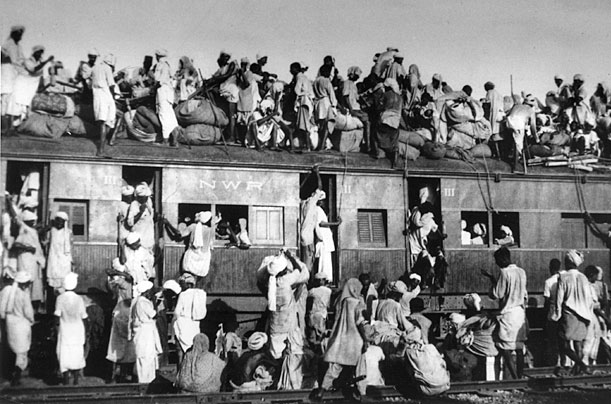
In 1947, after 200 years of control, the British finally quit the Indian subcontinent. Before leaving, the colonizers drew a line in the sand that formed two new dominions: Muslim-majority Pakistan and Hindu-majority India. Some 15 million people migrated (the largest human migration in history) and one to two million perished in the communal violence that followed.
Several decades passed before a widespread effort was made to document survivors’ testimonies about their experiences. One of the first, the Oral History Project by the Citizens Archive of Pakistan, began collecting stories in 2007. A few years later, others, like the 1947 Partition Archive, followed.
Thankfully, there were also books. Partition literature encompasses a wide variety of fiction and nonfiction published in multiple countries and multiple languages. They capture some of the most harrowing events of the era, but also the courage, sacrifice, and generosity of the human spirit.
Urvashi Butalia, author of The Other Side of Silence: Voices from the Partition of India, writes:
“How do we know this event except through the ways in which it has been handed down to us: through fiction, memoirs, testimonies, through memories, individual and collective?”
The focal point of my own debut novel, The Parted Earth, is about how survivors’ stories are either passed down or forgotten, and the importance of preserving them. The book spans 70 years, from 1947 to 2017, and centers two main characters: Deepa, a 16-year-old living in Delhi in 1947, and Shan Johnson, her estranged 41-year-old granddaughter, living in Atlanta in the present day. What I hoped to convey is how Partition has lived on. It is not so much an event in the past, but one that continues to influence the descendants of those who survived it.
The Other Side of Silence: Voices from the Partition of India by Urvashi Butalia
This groundbreaking book was one of the first I came across with in-depth firsthand testimonies of Partition survivors. Butalia’s family members were Sikh refugees from Lahore, a city in the new Pakistan, who were forced to escape to India. One of the survivors she interviews is her own uncle who stayed behind. Her family did not have contact with him for 40 years until she reached out.
Butalia is a feminist activist and scholar, and in the book, she highlights the violence against women during Partition. Some 75,000 women were raped, she writes, though some sources put this figure closer to 100,000. In order to keep them from being kidnapped, raped, and converted, men killed the women in their families to “martyr” them. Butalia writes about the fustrating silence around Partition’s gendered violence, and the inaccurate ways it is often described:
“Killing women was not violence, it was saving the honour of the community; losing sight of children, abandoning them to who knew what fate was not violence, it was maintaining the purity of the religion; killing people for the other religion was not murder, it was somehow excusable…seldom has a process of research I have been engaged in brought me more anger, and more anguish.”
Victory Colony 1950 by Bhaswati Ghosh
This engrossing debut novel begins in 1950, three years after the formation of what was then East Pakistan (now Bangladesh). Amala Manna and her younger brother Kartik owe their lives to a local Muslim family who hid them when rioters were roaming their village. They escape only to be separated at a train station in Calcutta. Amala must build a new life in a refugee camp in the new India with strangers who share similar, unimaginable losses.
Ghosh is a journalist, a translator of Bengali and English, and the granddaughter of a Partition survivor. In an interview with The Rumpus, the Canadian author talked about the general lack of awareness about how Partition played out along the eastern border: “There was tremendous loss on the eastern border, too, perhaps not the same in scale but definitely huge psychological and sociocultural losses, the effects of which continue to impact subsequent generations.”
Midnight’s Furies: The Deadly Legacy of India’s Partition by Nisid Hajari
Hajari’s book is a who’s who of political operatives leading up to the cracks and fissures of the subcontinent. The author deftly dissects the intentions and flaws of the nations’ first two leaders, India’s first Prime Minister Jawaharlal Nehru and Pakistan’s first Governor-General Muhammad Jinnah, both of whom were ill-prepared for what was to come.
Hajari asks an essential question of how two nations with so much in common become enemies so quickly. He answers it by piecing together personal correspondence, including notes, letters, and diaries of political and military leaders, as well as reports of spies, economic data, and governmental gossip.
The Pity of Partition: Manto’s Life, Times and Work Across the India-Pakistan Divide by Ayesha Jalal
There may be no more prolific a writer of Partition fiction than Saadat Hasan Manto, whose short stories captured every aspect of Partition, including the irony of it. One of the most translated Urdu writers, Manto fled to Lahore in the new Pakistan during Partition. His 700-page collected stories, Bitter Fruit, can be purchased through second-hand sellers. It’s well worth the effort to locate a copy.
If you’re looking for a less hefty read, and one that can be more easily purchased in the U.S., try Jalal’s engaging biography of Manto, which examines Partition through the lens of his letters, essays, and short stories. A Pakistani American historian at Tufts, Jalal nimbly spotlights the seemingly limitless creative energy of a writer who produced over twenty short story collections, a novel, and several plays, before his death at only age 42.
“With his no-holds-barred critique of society and his unshakable belief in the inherent goodness of people, however lowly and despicable they may seem to others, [Manto] makes the postcolonial moment come alive in all its ambivalences and contradictions.”
Partitions by Amit Majmudar
Poet Amit Majmudar’s debut novel is a sweeping story about four characters uprooting their lives to cross the new border. They include Keshav and Shankar, six-year-old twins who become separated from their mother when boarding a train to Delhi; Simran Kaur, a teenage Sikh girl whose survival depends on her first escaping her own family, and Ibrahim Masud, a Muslim doctor, who, while trying to make his way to Pakistan, heals others along the way.
The urgency of their journeys is conveyed through the twins’ long-deceased father who has seen the future and knows what awaits the fates of his sons and his widow. He is present not as a guide, but as a witness in the afterlife to their grief and suffering, and help them feel less alone. Majmudar’s dazzling novel highlights the very best of human nature in the midst of the horrific violence.
Cracking India by Bapsi Sidhwa
Originally entitled Ice Candy Man, Cracking India is told through the eyes of eight-year-old Lenny, a polio survivor, who lives in Lahore with her Parsi family when her nursemaid is kidnapped. Sidhwa adroitly unspools how Lenny comes to understand the escalating violence between Hindus, Sikhs, and Muslims, and what people who once lived together peacefully are capable of doing to one another.
The New York Times deemed Sidhwa, born in Karachi in 1938, “Pakistan’s finest English language novelist.” Like her character Lenny, she is a survivor of both polio and Partition. In an interview for Dawn, she recalls a memory of that time:
“I was seven or eight. And I remember the roar of the mob from a distance. I couldn’t make out the words. But later, I was able to decipher the ‘Hare Hare Maha Dev,’ the ‘Allahu Akbar’ and the ‘Sat Siriye Kaal.’ Even back then, I could understand that they are killing each other. I knew it was evil.”
Train to Pakistan by Khushwant Singh
Singh’s classic novel was first published in 1956, only nine years after Partition. It takes place in Mano Majra, a predominantly Muslim and Sikh village that sits near the northwest border. The communities have been living in harmony for generations, but eventually, the villagers—who have always treated one another like family regardless of faith—are suddenly thrust into a bloody socio-political war that threatens to rip their village apart.
A lawyer in Lahore during Partition, Singh escaped alone via car to India, eventually settling in Delhi. As a journalist and editor of the Hindustan Times, he reported on the long aftermath of Partition. And though he lived to see the reissue of his novel in 2006 at age 91, he died before a memorial or a museum devoted to Partition was established. Singh’s wish, the same wish of many other survivors of this era, was that the stories of Partition would never be forgotten. “People should know this thing happened,” Singh said in a New York Times interview. “It did happen. It can happen again.”




